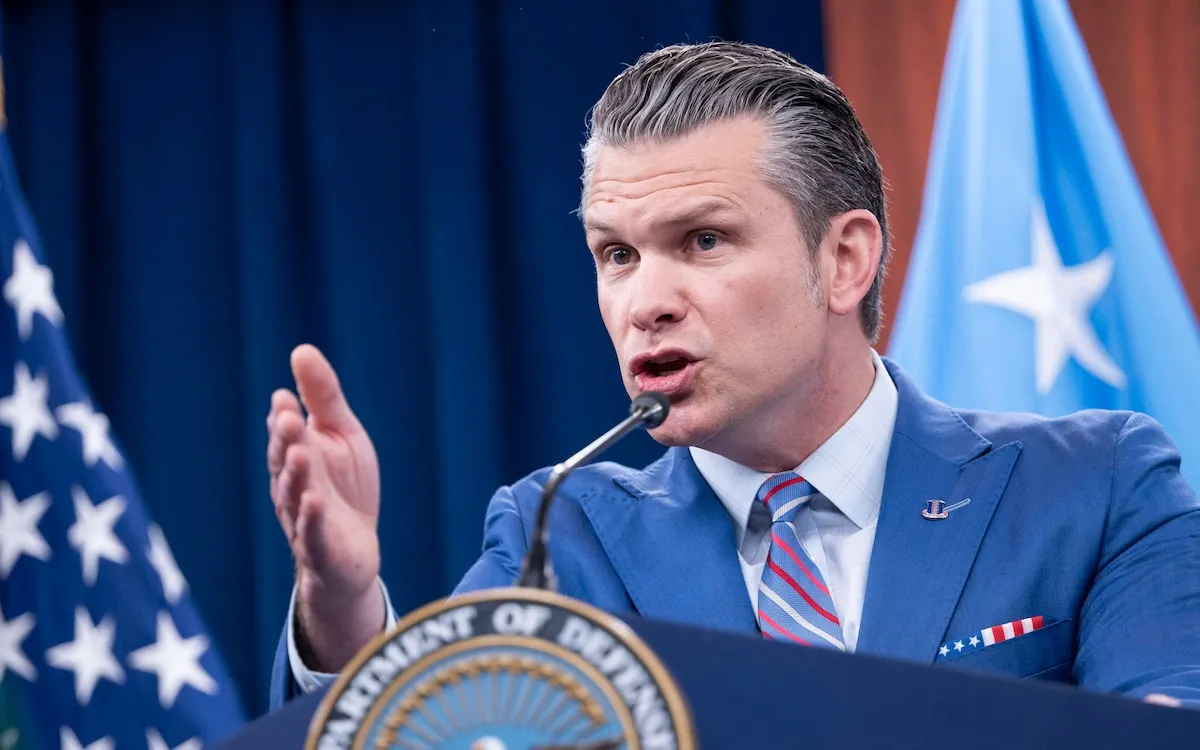
During a news conference on Thursday morning, Defense Secretary Pete Hegseth directed sharp criticism at the media regarding its coverage of recent U.S. military operations against three Iranian nuclear facilities. Among the journalists present, Fox News reporter Jennifer Griffin, who serves as the outlet’s chief national security correspondent stationed at the Pentagon, stood out for her challenging questions. Specifically, she questioned Hegseth’s assertion that the U.S. strikes had significantly impeded Iran's nuclear program.
Griffin confronted Hegseth with a pointed inquiry: “Do you have certainty that all the highly enriched uranium was inside the Fordow mountain or some of it? There were satellite photos showing more than a dozen trucks there two days in advance. Are you certain none of that highly enriched uranium was moved?” This question aimed to clarify the effectiveness of the strikes and whether they truly achieved the intended objectives.
In response, Hegseth, a former co-host of Fox & Friends, suggested that the media’s perceived bias against former President Donald Trump had led to a distorted portrayal of the military actions. He criticized Griffin’s professionalism, stating, “Of course we’re watching every single aspect. But Jennifer, you’ve been about the worst, the one who misrepresents the most intentionally what the president says.” This remark sparked considerable discussion about the accountability of media representations in times of military conflict.
Undeterred by Hegseth’s comments, Griffin defended her journalistic integrity. “I was the first to report about the ventilation shafts on Saturday night. In fact, I was the first to describe the B-2 bombers, the refueling, the entire mission, with great accuracy. So I take issue with that,” she asserted. This defense highlighted her commitment to providing accurate and timely information regarding national security matters.
Following the exchange, Hegseth reiterated his view that the strikes represented “the most complex and secretive military operation in history.” He acknowledged Griffin’s reporting, saying, “I appreciate you acknowledging that this is the most successful mission based on operational security that this department has done since you’ve been here, and I appreciate that.” This acknowledgment aimed to underline the complexity of the military operations while maintaining a narrative of success.
In the wake of Hegseth’s criticism, Brit Hume, the chief political analyst for Fox News, came to Griffin's defense. Hume described Hegseth's attack as “unfair,” emphasizing Griffin’s professionalism and expertise. “An attack she certainly in my view did not deserve. Her professionalism, her knowledge, her experience at the Pentagon is unmatched, and I have had and still have the greatest regard for her,” Hume remarked. This defense from a senior colleague served to highlight the internal dynamics at play within the network regarding journalistic integrity and criticism from political figures.
As the conversation continues about the effectiveness of U.S. military strategies and media representations, this exchange underscores the critical role of journalism in holding government officials accountable and ensuring transparency in national security matters.